Past Institute Fellows
Note: Fellows' academic titles are listed as those held at time of fellowship.
2024-2025 | 2023-2024 | 2022-2023 | 2021-2022 | 2020-2021 | 2019-2020 | 2018-2019 | 2017-2018 | 2016-2017 | 2015-2016 | 2014-2015 | 2013-2014 | 2012-2013 | 2011-2012 |2010-2011 | 2009-2010 | 2008-2009 | 2007-2008 | 2006-2007 | 2005-2006 | 2004-2005 | 2003-2004 | 2002-2003 | 2001-2002 | 2000-2001 | 1999-2000 | 1998-1999 | 1997-1998 | 1996-1997 | 1995-1996 | 1994-1995 | 1993-1994 | 1992-1993
2024-2025 Fellows
Professor, Department of Philosophy
Director of the Brady Program in Ethics and Civic Life
Project: An Ethics of Love: Iris Murdoch's Moral Philosophy
"Best known as a novelist, Iris Murdoch was also an insightful moral philosopher. She argued that ethical thinking begins with the stories that we tell and accept. These stories make certain ethically significant concepts available to us while occluding others. She holds that moral philosophy, done well, expands our conceptual repertoire, allowing us to see reality more clearly. In her view love is the most central moral concept: love of others, rather than merely choosing and acting well, is the most important moral task. I am working on a monograph that brings Murdoch into conversation with contemporary moral philosophy and ethical theory. The book includes chapters on ethical concepts, narrative and justification, freedom, value, ideals, God, love, and moral community."
Assistant Professor in Residence, Communication and Liberal Arts Programs, Northwestern Qatar
Global Humanities Fellowship jointly sponsored by the Alice Kaplan Institute for the Humanities and the Buffett Institute for Global Affairs.
Project: Feeling Like the Global South: Recoding Digital Bahdala in the MENA
"My research offers bahdala—the Arabic word for a humbling ridicule—as an emotions framework for the underlying economy of the Internet. I argue that a rising entrepreneurial class across the MENA channels spectacles of shame online, gaining capital in global market economies that cause bahdala in the first place. For publics across Lebanon and Egypt invested in global inclusion, encounters on platforms forge a geopolitical, nation-based Global South which is at odds with a postnational Global South consciousness."
Head of Assessment and Planning, Northwestern University Libraries
Library Fellow 2024- 2025
Project: Understanding the Roots of Political Music: The Political Themes of the Music of Max Cavalera
This project will analyze the music of noted Brazilian heavy metal musician Max Cavalera and identify how political themes developed throughout his career. Expanding on existing scholarship covering his influential band, Sepultura, this project will examine his entire career with a focus on his work after leaving Sepultura and his immigration to the United States.
Associate Professor, Department of Radio/Television/Film
Project: Madea’s Baby, Tyler’s Maybe: Tyler Perry on Stage and in Film, 1997-2019
"Madea’s Baby, Tyler’s Maybe analyzes the first twenty years of media mogul Tyler Perry’s career. I employ a media studies-centered, yet rigorously interdisciplinary approach to Perry, and to the overlapping historical, industrial, and cultural roots of his success. My book mobilizes Perry’s elder drag character 'Madea' as the complex locus of his dynasty, mapping his attempts to channel and control this powerful matriarchal figure—across time and space; through distinct media formats; alongside Perry’s own aging; and coeval with transformations in mainstream and public discourses on gender and sexuality."
Associate Professor, Department of Radio/Television/Film
Project: In the Frame: Organizing and Delimiting the Moving Image from Virtual Reality to Cinema
"My book explores the ways in which the rise of virtual reality enables us to reassess the concept of the frame and the practice of framing in moving-image media. Drawing on an interdisciplinary discourse on frames and framing, I advocate conceptualizing the mediatic frame not as a delimited view but rather, more expansively, as the frame of reference for a range of processes of organization and delimitation operating across formal, material, and social registers."
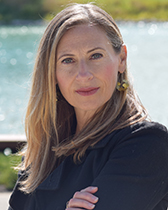
Associate Professor, Department of Anthropology and Program in Global Health Studies
Project: Conditions of Meaning: An Ethnography of Mind-Body Illness
This book project asks the question, what if we take seriously the idea that idiom, story, and script shape the experience of body and the course of illness? Engaging that question, this project draws on the layered stories of people’s intimate experiences with Functional Neurological Disorder—a surprisingly common, yet enigmatic illness with symptoms that mimic those of other neurological disorders but without discernible organic cause. The book coalesces around a number of critical themes, including: gender and power, bodily languages of protest, medical discourses and moral personhood, social scaffolding of sensation, bodily affordances, and embodied metaphor. Tracing the vivid personal accounts of people living with a disorder often dismissed as “all in their heads,” this project seeks to create a broader understanding of how we listen to and make meaning of our bodies.
Assistant Professor, Department of English
Project: Dear Whiteness: Poems
Dear Whiteness is a book-length series of epistolary poems. Epic in scope and global in orientation and form, the poems move episodically across time and space—from the 7th Century Arab Slave Trade in the Maghreb to the contemporary Bronx—comprising traditional lyric and poetic erasures of legal texts, racial taxonomies, and slave narratives. Choral, with many “authors,” both historical and imagined, the letters-as-poem interrogate where racial constructs fall apart—the edges, the liminal spaces without a name or familiar narrative—in terms of both mixed-race embodiment and experience, as well as cultural contradiction. By demonstrating how racial constructs exist to preserve and protect the existence of Whiteness, broadly construed, across national context and period, the poems articulate the imaginative possibilities of inhabiting a racial liminality.
Sarah Thorngate
Data Analysis Librarian, Digital Scholarship, Northwestern University Libraries
Library Affiliate 2024-2025
Sarah Thorngate is part of the Digital Scholarship team at Northwestern University Libraries. In that role, she collaborates with faculty and graduate students interested in using computational methods in their research. She has a BA in music, religion, and English from St. Olaf College, an MLIS from the University of Illinois, and an MA in sociology (PhD in progress) from Loyola University. Her research and teaching interests include social class inequalities in higher education and critical data, digital, and information literacies.
Assistant Professor, Department of Black Studies
Charles Deering McCormick Distinguished University Professor of Instruction
Project: Pens and Needles: Toni Morrison, Quilts, and Community
Tracy Vaughn-Manley’s current book project, Pens and Needles: Toni Morrison, Quilts, and Community, is a study on the ways in which Nobel Laureate Toni Morrison uses quilts and quilting in her work as an editor, author, and public scholar. Drawing upon current theories of resistance, Black feminism, performance, and cultural aesthetics, Vaughn-Manley demonstrates how these theories intersect and illuminate the importance of quilts, quilt-making, and community building in Morrison’s work.
Associate Professor, Department of German
Project: Bluster: Bourgeois Anxiety and Expository Style in Late Nineteenth-Century Germany
"My project investigates a strangely dominant, yet largely unexamined tone in mid- to late nineteenth-century German literature: a paradoxical combination of bombast, avuncularity, belligerence, and petulance that I, taking a cue from an early book review by Friedrich Nietzsche, designate with the name “bluster.” Through readings of particular works of popular philosophy and the both stylistic and thematic debates that they provoked (as well as some fictional examples), I explore the implications of this tone as simultaneously a form of self-legitimation and a response to a legitimation crisis: the expression of masculine bourgeois fragility in the age of the bourgeoisie’s supposed triumph."
2023-2024 Fellows
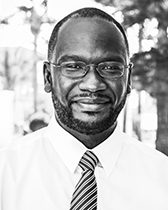 Corey L. Barnes
Assistant Professor, Department of Philosophy
Corey L. Barnes
Assistant Professor, Department of Philosophy
Project: Race’s Shadowy Subjects: Conceptions of Race in Early Black Political Thought
"Race’s Shadowy Subjects aims to situate Blacks within this intellectual history of the development of race conceptually, looking specifically at their philosophical contributions to it. It seeks to show how early Blacks intellectuals—namely, Maria Stewart, Martin Delany, Alexander Crummell, Anténor Firmin, Anna Julia Cooper, W.E.B. Du Bois, and Alain Locke—responded to accounts of race authored by whites, along with other Blacks who were thinking about what race is and what we ought to do with it, given the racist theories of race authored by whites and the onslaught of stereotypes about them. And so it seeks to answer three questions. First, what were early Black intellectuals’ ontological and normative accounts of race? Second, how did these early Black intellectuals respond to white intellectuals’ ontological accounts of race? Third, how did these early Black intellectuals respond to other Blacks who were theorizing about race? It is the hope that this book leads to greater discussions about how other early non-white thinkers such as early Indigenous, Latinx, and Asian thinkers engaged these questions about race."
Authority Metadata Librarian, Northwestern University Libraries
Library Affiliate 2023-2024
Jamie Carlstone is the Authority Metadata Librarian at Northwestern University Libraries. She has a B.A. in history and American studies from DePaul University and an M.A. in early modern history from Durham University. She has written about metadata standardization and the history of copyright renewal. Her current interests are in scholarly identity management, text analysis, and improving our metadata to be more inclusive.
John D. MacArthur Professor, Department of Sociology
Project: Bringing the Future into the Present: How to Act in the Long Term
"To deal with climate change, or any long-term problem, it is necessary to bring the future into the present. Such problems often involve a complicated mixture of certain current costs and uncertain future payoffs, and it is tempting to avoid action altogether. Why not let future generations fend for themselves? In my comparative-historical project, I consider examples of social institutions where contemporary decision makers acknowledged and protected, albeit imperfectly, the interests of future individuals."
Assistant Professor, Department of Philosophy
Project: Machines in the Agora: Artificial Intelligence and Political Communication
"Inquiry into political communication has historically been able to take it for granted that human beings, with all their passions and foibles, were the ones authoring its texts. But recent explosive advances in the use of deep learning models to produce text, images, and video invalidate this assumption and raise urgent analytical and normative questions about the conduct of politics in this new information environment. How does politics work when it is difficult or impossible to tell whether some text was composed by a human being, or else by a language model trained to tailor persuasive messages to a surveilled online audience? When it is impossible to tell whether a video—of a protest, press scrum, or atrocity—is fabricated whole-cloth? What, in such an environment, happens to solidarity, persuasion, and mobilization? And how do institutional and non-institutional political actors adapt to the simultaneous informational excess and poverty that this entails?"
Associate Professor, Department of Religious Studies
Project: Debating 'Religion' in Muslim South Asia: On the Colonial Pathways of a Modern Category
"It is commonplace for Muslims to claim that Islam is not merely a 'religion' but is a 'way of life.' My project excavates the history of this truism. It examines how Muslims in modern South Asia conceptualized, debated, and contested the category of religion and Islam's relation to it. First, it shows how British colonialism promoted a conception of religion as normatively private, apolitical, and interior. It then illustrates, secondly, how Muslims began to reject that framework and advance visions of an Islam that is public, political, and communal, challenging the very notion that Islam is a 'religion' at all."
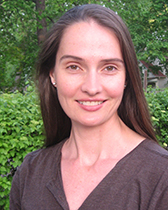 Sarah Jacoby
Sarah Jacoby
Associate Professor, Department of Religious Studies; Charles Deering McCormick Professor of Teaching Excellence
Project: The Autobiography of Sera Khandro
"My project is to produce the first-ever English translation of the autobiography of the Tibetan Buddhist female visionary Sera Khandro Dewé Dorjé (1892-1940). Sera Khandro’s autobiography is at once a priceless resource for gaining a better understanding of the social history of Vajrayāna Buddhism in Tibet, and an incomparably beautiful and poignant work of world literature."
Assistant Professor, Department of English
Project: Unendurable Freedom: US Empire, 9/11, and the Fate of the Postcolonial
"What happens when the proverbial waiting room of colonial history turns into the indefinite detention center or forever-warzone for the postcolonial subject? My book Unendurable Freedom argues that Global South writing in the wake of 9/11 illuminates the variable pressures exerted by cultures of US empire, particularly intersections of literary prestige and humanitarianism, on postcolonial sovereignty to provincialize liberal-universalist freedom. Examining Pakistani, Afghan, and Iraqi diasporic and refugee novelists, transnational Muslim memoirists and graphic artists formerly detained at Guantánamo Bay, I identify a contemporary cultural archive that delineates how postcolonial citizenship comes undone in new ways after Operation Enduring Freedom. Crucially, the book tracks the peculiar conscription of post-9/11 Global South writers into US cultural institutions—ranging PEN America, PEN International, Amnesty International, and UNESCO as well as the US MFA program—even as they engage in a critique of US exceptionalism. Unendurable Freedom highlights how the Global South writer simultaneously negotiates cultural, humanitarian institutions and literary prestige culture through stylistic innovations that are situated within and against US liberalism."
Assistant Professor, Department of Radio/TV/Film; Affiliate Faculty: Program in Documentary Media, Department of Performance Studies, and Department of Asian Languages and Cultures
Project: Untimely Images
"Untimely Images gathers an understudied archive of Indian independent documentary from the 1970s to the present to narrate an aesthetic history of counter cinema and radical politics during a period of intense social upheaval in the subcontinent. Untimely Images is at once an archival study of politically engaged independent film, and a conceptual argument for reading film as a vernacular archive of minoritarian politics."
Assistant Professor, Department of Sociology
Project: Fit to Rule: The Rise of U.S. Empire and the Racial Management of Filipinos, 1898-1946
"In 1898, the United States went to war with Spain and gained a new colony, the Philippines. Confronted with ruling over new non-white people, U.S. state actors debated the relationship between the Philippines and the United States. These conflicts over the best way to achieve white hegemonic rule transformed the legal and administrative architecture of the state and laid the foundations for extraterritorial control that continues to this day.
Assistant Professor, Department of Black Studies and Department of English
Project: Niobe Redux: Black New Women, Literature, & Transformation
"My book interrogates how, from 1880 until 1910, a small group of Black women writers wrote neoclassical stories of gender and belonging. Pauline E. Hopkins, H. Cordelia Ray, and Alice Dunbar-Nelson rewrote stories from Ovid’s Metamorphoses to explore what it meant to be Black and women, be newly “free” as a class of people, and intervene in artistic traditions lasting as long as (at least) Roman literature. Through the lenses of Black Feminism, US slavery literature and history, gender and sexuality, and critical cultural studies, Niobe Redux understands that this group of Black women rewrote classic stories of transformation to critique cultural and political practices delimiting their positions as artists, women, and public figures."
Metadata Coordinator, Digital Products and Data Curation, Northwestern University Libraries
Library Fellow 2023-2024
Project: The Other Side of the Picture: John Evans, Edward S. Curtis, and The North American Indian
"Forty years after the Sand Creek massacre, photographer Edward S. Curtis began work on his 20-volume opus The North American Indian. These photographs have long defined the narrative of Indigenous peoples in the American West. This project aims to investigate 'the other side of the picture'—what would the narrative be if the subjects of the photographs spoke
2022-2023 Fellows
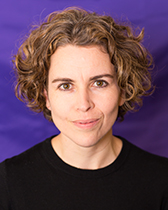 Ana Arjona
Ana Arjona
Associate Professor, Department of Political Science
Project: Political Life After Civil War: A Longitudinal Study of War Zones in Colombia
“This project investigates the legacies of civil war on the political life of those living in war zones—that is, the places where non-state armed groups operate. Relying on a longitudinal study of Colombian communities that lived with different types of regulations and local practices under the presence of guerrilla and paramilitary groups, I investigate how experiences of wartime violence and governance influence political behavior and local politics in the post-conflict stage.”
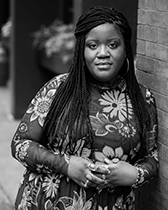 Danielle Bainbridge
Danielle Bainbridge
Assistant Professor, Department of Theatre
Project: Refinements of Cruelty: Enslavement, Enfreakment, and the Performance Archive
"My book examines the lives of 19th century African American sideshow and freak show performers who were also enslaved. The book also considers those who were enfreaked and had intimate ties to American slavery. I define enfreakment as an active process of subjugation that (coupled with enslavement) led to systems that sought to perpetually enslave Black disabled people after Emancipation, even while simultaneously casting them as abjectly valueless under the logics of the plantation."
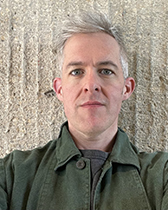 Ryan Dohoney
Ryan Dohoney
Associate Professor of Musicology; Core Faculty, Program in Critical Theory and Comparative Literary Studies; Affiliate Faculty, Gender and Sexuality Studies
Project: Dissonant Coalitions: Julius Eastman’s New York City, 1968–1990
"My book project listens for resonances of the voice of composer-vocalist-improvisor Julius Eastman in New York City from 1968–1990. I analyze the contradictory associations that sustained his artistic communities from the emergence of the gay liberation and Black power movements in the 1960s to the devastation of the AIDS epidemic in the 1980s. As antagonistic collation work, Eastman’s black queer experimentalism modeled an aesthetics and politics of irreducible plurality which has much to teach us in our own time."
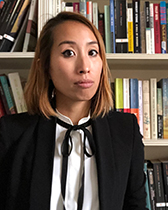 Michelle N. Huang
Michelle N. Huang
Assistant Professor, Department of English and Asian American Studies Program
Project: Molecular Race
"How does contemporary Asian American literature *experiment* with the terms of racial representation? Activating both valences of the word—literary-formal and scientific—my book project, Molecular Race, examines post-1965 works that engage scientific discourse to challenge the lay perception of race as a biological trait of an individual human. Working through paradigms from quantum physics, evolutionary genetics, developmental biology, and elemental chemistry, my book shows that not only is the nexus of race and science not reducible to scientific racism, but also, that science can be an unlikely creative reservoir for Asian American writers."
 Doug Kiel
Doug Kiel
Assistant Professor, Department of History and Kaplan Humanities Institute; Faculty Affiliate, Center for Native American and Indigenous Research (CNAIR)
Project: Power Over the Land: Race, Colonialism, and the American Midwest
The American Midwest has long been mythologized as a heartland of whiteness and homogeneity, while its true character has always been far more complicated and contested. Within the past decade, for instance, the communities of Ferguson, Missouri and Flint, Michigan have become synonymous with endemic police violence and unequal toxic risk, driving national conversations. Power Over the Land highlights the means by which racial capitalism has shaped Midwestern history and geography.
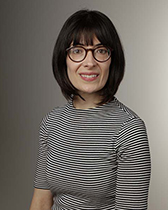 Dana Lamparello
Dana Lamparello
Head of Public Services, McCormick Library of Special Collections and University Archives
Library Fellow 2022-2023
Project: Crate & Barrel Case Study, 1962-1970
This project explores the impact of modern home furnishings retail brand, Crate & Barrel, by analyzing its founding years in Chicago alongside the broader historical context of post-WWII American design consumer activity; Chicago as an influential site of modern design consumption; and design of the modern American home in relation to the period’s evolving concepts of women’s work and domesticity.
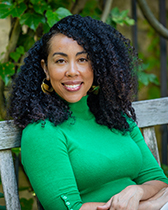 kihana miraya ross
kihana miraya ross
Assistant Professor, Department of African American Studies
Project: Black girls speak: Anti-blackness, fugitivity, and refusal in education
"My book project is an ethnographic study of Black space in education and builds on my recent theoretical work on Black educational fugitive space to examine the ways Black girls experience, refuse, and resist anti-blackness in schools. Black girls speak considers how we might build on the radical possibilities in wrestling with anti-blackness in education, towards developing bold and decisive policies and practices that confront the educational debt owed to Black communities, and begin the process of meaningful redress."
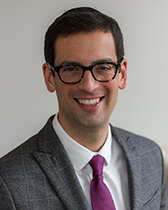 David Shyovitz
David Shyovitz
Associate Professor, Departments of History and Religious Studies, and Crown Family Center for Jewish and Israel Studies
Project: Jews, Animals, and Jewish Animals in Medieval Europe
"My book-in-progress explores the overlapping ways in which Jewish and Christian authors and artists distinguished humans from animals, and Jews from Christians, over the course of the Middle Ages. Specifically, it shows that in Europe during the high Middle Ages, both Jews and Christians increasingly equated Jews with animals. For Christians, the linkage was meant disparagingly—claims that Jews were fundamentally animalistic served to 'de-humanize' them by highlighting their inferiority and irrationality. But a wide range of medieval Jewish authors and artists self-consciously celebrated their 'beastly' identity, and sought to efface the conceptual and theological boundaries between humans and animals altogether. My book project explores this paradoxical convergence between Christian and Jewish discourses of animality, and traces the motif of the 'beastly Jew' in a wide array of theological, scientific, and artistic sources. The counter-intuitive overlap between Christian polemic and ostensibly 'internal' currents of Jewish thought speaks to the complexities of medieval interreligious relations, and, more broadly, to the shifting and contested status of 'the animal' in medieval European culture."
 Vivasvan Soni
Vivasvan Soni
Associate Professor, Department of English
Project: Fictions of Judgment: Empiricism, Aesthetics, and the End of Ends
"Why are we so uncomfortable with the practice of judgment? Are judgments anything more than the expression of subjective preferences? If judging something is different from knowing it, what legitimacy or authority do judgments have? My book project locates the roots of our current allergy to judgment in the emergent eighteenth-century discourses of empiricism and aesthetics. Against these discourses, I turn to novels in the period, particularly Jane Austen’s, to show how judgment works and why judgment is necessary to create the world of meaning we inhabit."
2021-2022 Fellows
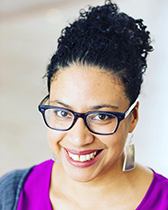 Masi Asare
Masi Asare
Assistant Professor, Departments of Theatre and Performance Studies
Project: Voicing the Possible: Technique, Vocal Sound, and Black Women on the Musical Stage
“My book project examines the transmission of singing techniques and the impact of black women singers in U.S. musical theatre from 1900 to 1970. I trace a line of historical singing lessons locating blues singers in the lineage of Broadway belters. Contesting the narrative that black women who performed on the musical stage during the blues era and beyond possessed 'untrained' voices, I study the ways that singing is sonic citational practice. As singers, we always cite our teachers, the ones from whom we have learned the song."
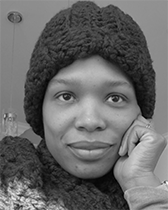 Adia Benton
Adia Benton
Associate Professor, Department of Anthropology and Program of African Studies
Project: The Fever Archive: Race, Risk and Survival in the Wake of Sierra Leone’s Ebola Outbreak
"My book, The Fever Archive, is an account of the 2013-16 West African Ebola epidemic, focusing not on simply evaluating or assessing the success or failure of the interventions mobilized by international actors, but also on the cultural and institutional logics of these interventions. More specifically, the work focuses on the ways that these cultures, particularly those of 'global health,' engender and reproduce racialized and hierarchical relations around 'capitalism, humanitarian ethics, and ideologies of risk.' Drawing on participant observation, social media and open-source mapping and analysis, and field and archival research, The Fever Archive highlights the following practices and processes: how communities and institutions reckon with difference in times of a health epidemic; how they calculate risk and manage uncertainty during an epidemic such as Ebola; and how (affected) communities fight against inequalities and injustices in the midst of crises. Much of the final phases of work on the book will be focused on foregrounding race and racialization as key analytics; historicizing the processes of racialization via legacies of residential segregation in the colonial era through containment, isolation and policing practices into the present day; expanding the historical literature on public health and tropical medicine in the region, as well as on Ebola outbreaks; and deepening engagement with black studies approaches to health, medicine, and and the body."
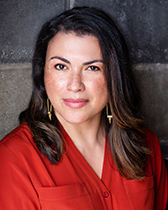 Lina Britto
Lina Britto
Associate Professor, Department of History; Affiliate Faculty, Department of Spanish and Portuguese
Project: Healing Democracy: A Medical History of Medellín's Cocaine Wars
“My next book examines a vanguard of scientists, doctors, and medical practitioners that made Medellín, Colombia, one of Latin America’s premier centers of medical research and clinical practice at a moment of ascent of a new service economy whose dynamism increasingly depended on cocaine exportation. Healing Democracy recasts a paradigmatic case of illegality and criminality in the Americas by reconstructing the violent defeat of alternative visions for the future of a city in crisis, and analyzing how medicine and public health became central battlegrounds of democracy in a country at war.” (Britto photo by Brian McConkey Photography.)
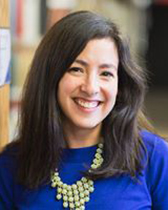 Michelle Guittar
Michelle Guittar
Latin American Studies Librarian, Head of Instruction & Curriculum Support, Northwestern University Libraries
Library Fellow 2021-2022
Project: Worshipping Buddhalupe and Seeking Liberation with Buddhist Practices
"This project will examine and contextualize the Buddhist themes in three texts, the 1987 seminal work Borderlands/La Frontera by Gloria Anzaldúa, the 2002 novel Caramelo by Sandra Cisneros, and the 2017 collection of poems Lessons on Expulsion by Erika L. Sánchez. It will also situate the Buddhist beliefs and practices of these women within the larger context of Latina identity and spirituality."
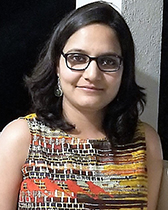 Ashish Koul
Ashish Koul
Assistant Professor, Department of History
Project: Caste Reinvented: Arains, Islam, and Politics in Twentieth Century South Asia
“This project is a history of caste, Islam, and politics among South Asian Muslims between the 1890s and 1980s. The book reveals the intertwining of caste and Islam among the Arains, a South Asian Muslim caste, and its ramifications for the Arains’ political selfhood first in British India and later in independent Pakistan.”
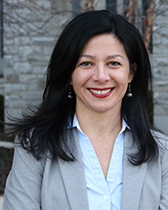 Jennifer Lackey
Jennifer Lackey
Wayne and Elizabeth Jones Professor, Department of Philosophy; Director, Northwestern Prison Education Program
Project: Criminal Testimonial Injustice
“In this project, I explore how testimony is extracted from individuals in the criminal legal system in the United States through processes that are coercive, manipulative, or deceptive, and is then unreasonably regarded as representing the testifiers’ truest or most reliable selves. I show that this practice is powerfully vivid with respect to four distinct phenomena: confession evidence, eyewitness testimony, plea deals, and the recantations of sexual assault survivors. The result will be a book at the intersection of philosophy and criminal law that shows how extracted testimony that bypasses or undermines agency inflicts a unique and pernicious form of injustice on testifiers.”
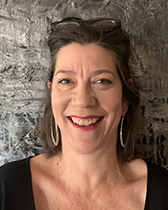 J. Michelle Molina
J. Michelle Molina
Associate Professor, Departments of Religious Studies and History
Project: Inventories of Ruin
“I study the demise of the Society of Jesus (‘the Jesuits’), a global order of religious men. The 1767 ‘Suppression’ of the Jesuits has been historicized as a dramatic but temporary setback. In contrast, I recast this as a trans-Atlantic story of near-total demise. The Mexican Jesuits are my principal focus. Adapting a micro-historical approach to the story of people, books, and things in motion, Inventories of Ruin draws upon such varied perspectives as the Spanish Crown, members of freed-black Jesuit confraternities, a Swede entangled with Jesuit refugees en route to exile, and a single Jesuit who scribbled 379 mini-biographies of deceased Mexican Jesuits. Spanning a period of 50 years, this intimate story of demise is anchored in three types of inventories that catalyze our historical understanding of ‘inventorying’ as a humanistic practice of making order out of disorder, even chaos.”
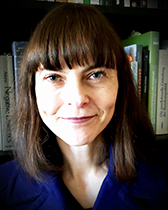 Anna Parkinson
Anna Parkinson
Associate Professor, Department of German, Gender and Sexuality Studies Program, and Jewish Studies Program
Project: Contrapuntal Humanism: The Afterlives of Humanism in Holocaust Studies
“My project puts into dialogue the modernist fiction and social scientific writings of two exiled German-language authors and Jewish Holocaust survivors: psychoanalyst Hans Keilson and historian H.G. Adler. Counter-intuitively, perhaps, their postwar interdisciplinary writing cleaves to a paradigm of humanism, even as it exposes its fragility, paradoxes and limitations. Contrapuntal humanism examines the ongoing political and ethical practices we engage in, especially in moments of heightened social and historical crisis that challenge the axiomatic ontology of humanism.”
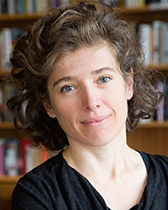 Ozge Samanci
Ozge Samanci
Associate Professor, Department of Radio/Television/Film, School of Communication
Project: Evil Eye (graphic novel)
“The graphic novel, Evil Eye, explores the tactics right-wing populist leaders are using throughout the world: planting seeds of fear, celebrating binary thinking, 'othering' marginalized groups, and using anger and hostility to increase divisions. Evil Eye uses the murder mystery genre, lived anecdotes, humor, and suspense as narrative devices to explore questions about the rise of authoritarianism in non-didactic ways.” (Samanci photo by Annette Hornischer.)
 Jen Young
Jen Young
Metadata Coordinator, Repository and Digital Curation, Northwestern University Libraries
Library Affiliate 2021-2022
Jen Young is the Metadata Coordinator at Northwestern University Libraries where she oversees the creation of metadata for the Libraries’ digital repositories. She has a Master of Science in Library and Information Science from the University of Illinois at Urbana-Champaign and a BA in History from Bradley University. She is particularly interested in the language used to describe library resources from a diversity, inclusive, equitable, and accessible perspective.
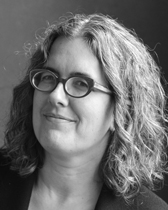 Rebecca Zorach
Rebecca Zorach
Mary Jane Crowe Professor of Art and Art History, Department of Art History
Project: The Designs of Nature, The Ecology of Race
“I’m pursuing two projects that address political implications of the ways art has been defined historically in relation to nature. The first project, The Designs of Nature, studies how in the European Renaissance, the personified figure of Nature acted 'like an artist' in producing natural images thought to rival the products of human artistry. The second project, tentatively entitled Temporary Monuments, studies how the very idea of art in the United States hinges inevitably on concepts of nature, territory, and race.”
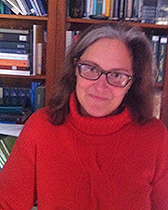 Rachel Zuckert
Rachel Zuckert
Professor, Department of Philosophy; Affiliate Faculty, Department of German
Project: Not Just a Matter of Taste: Essays on Eighteenth-Century Scottish Aesthetics
“The project aims to broaden discussion of Scottish Enlightenment aesthetics by attending to transformative theories of beauty, sublimity, artistic imitation, and the paradox of tragedy, presented in now-neglected, but historically influential texts. The book also treats the role of aesthetics within larger Scottish Enlightenment projects: natural-scientific investigation; the defusion of religious enthusiasm; and politically emancipatory education.”
2020-2021 Fellows
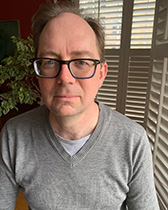 Christopher Bush
Christopher Bush
Associate Professor, Department of French and Italian and Comparative Literary Studies Program
Project: Light from Distant Stars: Film Form and the Idea of Japanese Cinema
"My book project explores the idea of 'Japanese cinema' and its global history. The early chapters will reread landmark film theory texts that relied on (sometimes extravagant) claims about 'Japanese cinema' to develop their influential concepts. The second half of the book analyzes the relationship between a diverse set of films from the mid-1980s that self-consciously explored the legacies of this 'Japanese cinema,' ranging from European art cinema to American cyberpunk and the Taiwanese new wave."
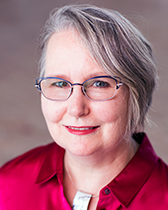 Tracy C. Davis
Tracy C. Davis
Barber Professor of Performing Arts: Department of Theatre, Department of English, and Department of Performance Studies
Project: Performing the Cornerstones of Liberalism: Advocacy and the Invention of Activism
This project explores how two generations of a Victorian family advocated more effectively for abolition, universal suffrage, free trade, and anti-genocide throughout the British Empire by extrapolating principles of performance drawn from drama, the church, law, parliament, and public meetings. Recognizing ways that self-presentation, oratory, scenography, and mise en scène could improve orchestration of events, these imperial skeptics honed critique of others’ presentations to optimize their own performances when making direct appeals to the public, lobbying the government, and writing as journalists. The project derives a new theory of female and male public/private spheres by holistically noting where, by whom, and in what manners political work activated liberal thought as lived practices.
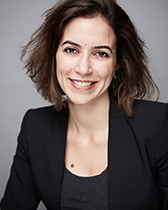 Loubna El Amine
Loubna El Amine
Assistant Professor, Department of Political Science
Project: Beyond Freedom and Slavery: Status and Membership in the Ancient Confucian Political Community
"In this book project, I am interested in how the early Confucians conceptualized the political community in the absence of the freedom and slavery duality that has been so central to various traditions in Western political thought. I analyze the depictions of concubines, servants, peasants, artisans, convicts, and foreigners in the Five “Confucian” Classics and show that the distinctive feature of the ancient Confucian political community is its inclusiveness."
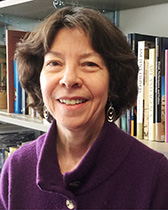 Ann Gunter
Ann Gunter
Bertha and Max Dressler Professor in the Humanities; Professor of Art History, Classics, and in the Humanities
Project: A Culture of Empire and the Neo-Assyrian World
"My project explores the changing cultural landscape of an early imperial state, the Neo-Assyrian Empire (ca. 900-612 BCE), extending from southern Turkey to western Iran, Egypt, and the Arabian peninsula. A key strategy of manipulation and control involved a cultural framework that allowed and promoted participation in the imperial project, accomplished through shared practices around the built environment, dress and personal ornament, dining, and other modes of official and social performance. I examine both archaeological and textual evidence to elaborate the role of material and visual culture in the construction of Assyrian identities."
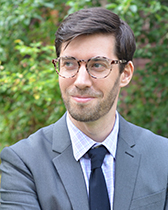 Daniel Immerwahr
Daniel Immerwahr
Associate Professor, Department of History
Project: People of the Flame: Growth, Wood, Fire, and the End of the World
In the nineteenth century, the United States’ population boomed at a historically unprecedented rate. Instant cities sprang up, and millions streamed into them. Yet those cities—hastily built of wood—burned down frequently. People of the Flame connects episodes that have largely been told as local histories to offer a portrait of a flame-addled republic, where people knew both the rush of fortune and the chastisement of conflagration.
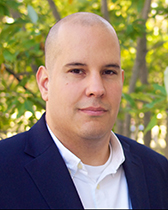 Michael Rodríguez-Muñiz
Michael Rodríguez-Muñiz
Assistant Professor, Department of Sociology and Latina and Latino Studies Program
Project: Movement Memories: State Repression and Political Trauma in Puerto Rican Chicago
"Between the 1960s and 2000s, Puerto Rican activists and their allies experienced extensive and intensive state repression at the hands of the FBI and local police. Through oral history interviews and community archiving, my project explores the political, mnemonic, and emotional afterlives of state surveillance and violence in Puerto Rican Chicago."
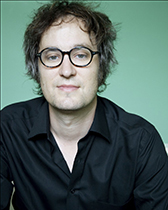 Hans Thomalla
Hans Thomalla
Professor of Music Composition, Department of Music Studies ; Director, Institute for New Music
Project: Dark Fall - Opera
Dark Fall is an opera about love and desire at old age. It explores the relations between several older protagonists, as their concepts of intimacy, agency, and autonomy slowly change. It will be written with and for older performers and examine the physical and semantic characteristics of their voices: a unique and rich medium for vocal expression, for which nevertheless very little music has been written, yet.
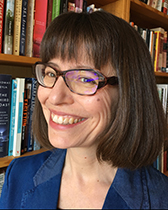 Helen Thompson
Helen Thompson
Professor, Department of English
Project: Transmuting Forms: Alchemical Secrecy and British Literary Modernity, 1650–1740
"In early modern England, alchemists used symbols, tropes, and figurative language to conceal their experimental procedures even as they circulated those procedures in print. My project claims alchemy’s paradoxical commitment to secrecy and disclosure as a critical influence on prose form. The secret history, a new narrative mode that exposed governmental corruption and deceit, adopted alchemical techniques to code its revelations. Transmuting Forms suggests that in early modern chemistry and the secret history, truth-telling was enabled not through transparency but through literary figuration."
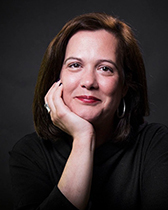 Alejandra Uslenghi
Alejandra Uslenghi
Associate Professor, Department of Spanish & Portuguese and Comparative Literary Studies Program
Project: Modernism’s Blindspot: New Women Émigrés and Modern Photography in Latin America (1930s-1960s)
“My project traces the development and dissemination of modernist photographic practices in the exilic trajectories of the female photographers Gisèle Freund, Kati Horna, Grete Stern, Hildegard Rosenthal, Gertrudes Altschul, Hannerose Herrigel, and Jeanne Mandello as they take refuge in Latin American countries during WWII. Mostly unrecognized in canonical cultural histories of 20th century modernism, their aesthetic contribution is conceived here as integral to it as members of transatlantic avant-garde movements, as radical-left activists and embodiments of the emancipatory possibilities of the new woman cultural movement.”
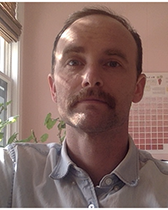 Tristram Wolff
Tristram Wolff
Assistant Professor, Department of English and Comparative Literary Studies Program
Project: The Uprooted Word in the Romantic Century
"My project identifies literary sources for ideas about race that emerge in the study of language. I show how the use of literary images like roots, decay, erosion, and fossilization guided the rise of philology over a long 'Romantic century' (ca. 1750-1850). Naturalizing language allowed scholars and poets to inspect linguistic form in the same manner that they would a material object or landscape, with its own history of formal change. At the same time, it also deepened the divide between textual record and living speakers. Part literary study of romantic-era writing, part history of linguistic thought, this research accounts for the ways natural metaphors helped paradoxically fashion the nineteenth century's philological revolution into both 1) a watershed in the human sciences, and the study of how cultures vary and change, and 2) an institutional home for racial pseudoscience, along with linguistic typologies that stabilized racial difference."
Project: Managing an Arid Land: Planning for an Environmental Future in the California Desert
Managing an Arid Land tells the story of the California Desert Conservation Area, a twenty-five million acre territory overseen by the Bureau of Land Management. Administration of the CDCA has relied heavily on the use of environmental impact statements, and this project asks what we mean by "environmental impact" in a place where management involves a complicated and rapidly changing set of concerns.
2019-2020 Fellows
 Ken Alder
Ken Alder
Professor of History and Milton H. Wilson Professor in the Humanities; Director, Science in Human Culture Program
Project: Lives of the Machines: Ten Memoirs from the Reign Of Technology
"My project approaches the history of technology from the perspective of the material objects themselves. It consists of ten memoirs by machines, artificial beings, and other artifacts, casting light on the human beings who designed, made, and used them. The life-stories they tell are true, based on research in archives, libraries, and museums. That said, these autobiographies by guns, bicycles, books, and typewriters also revive the fictional 'it narratives' of the first industrial revolution."
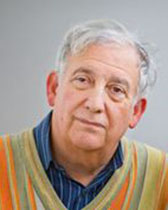 Gary Fine
Gary Fine
James E. Johnson Professor of Sociology
Project: Culture U: Arts Training in the Modern Research University
"I investigate the inclusion of artists in the modern American university. Building on my study of MFA artists, Talking Art, I address how a range of aesthetic activities have found a home in colleges over the past century, including visual art, theater, music, and even culinary work and couture."
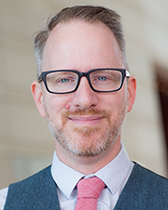 Kyle Henry
Kyle Henry
Associate Professor of Filmmaking, and Acting Director, MFA in Documentary Media, Department of Radio, TV, Film
Project: Eldercare
"A derived from actuality dramatic fiction feature film, Eldercare centers on the sometimes-fraught relationships between eldercare workers and the families for which they care. The film follows a Chicago African American homecare worker who is challenged by systemic class and race barriers as she cares for an elderly white woman with dementia who lives in a North Shore community.”
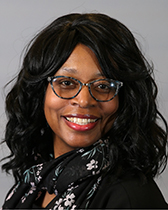 Qiana Johnson
Qiana Johnson
Collection and Organizational Data Analysis Librarian, Assessment and Planning, Northwestern University Libraries
Library Fellow 2019-2020
Project: Being First Two Times Over
Since the Episcopal Church of the United States began officially ordaining women in 1977, there have been numerous studies and reflections about the first women in the priesthood. However, less attention has been paid to the stories of the first black women ordained. Being First Two Times Over seeks to study the paths of the first five black women ordained in the Episcopal Church as well as to seat these women’s stories within the larger conversation occurring at the time around women’s ordination.
 Daniel Majchrowicz
Daniel Majchrowicz
Assistant Professor of South Asian Literature and Culture, Department of Asian Languages and Cultures
Project: Travel Writing and the Journey in Modern South Asia
"My book project, Travel Writing and the Journey in Modern South Asia, explores the history of vernacular travel writing in the Indian subcontinent from the mid-nineteenth to the mid-twentieth centuries. The first monograph to take up this vast tradition, it draws on thousands of new sources in a range of languages to argue that vernacular travel writing created a space for Indian readers and writers to formulate new ideas about the world and its possibilities. The project shows how the success of this prolific and popular genre in allowing readers to constitute the local through the global derived from the way that it combined the emotive power of India’s literary forms with an engaging didacticism and sense of urgency to know and engage with the world abroad. The result was a new literature that was at once informative, fascinating, and familiar. But for all its didactic underpinnings, this was no elite project; it was, rather, one taken up by writers from across the social and economic spectrum. Ultimately, Travel Writing and the Journey in Modern South Asia reveals the frenetic world of Indian travel writing, a space where the entire globe was held up for observation and interaction, and where South Asian readers could expect to find not just information and entertainment about the world, but even, potentially, their own place within it."
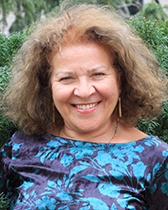 Inna Naroditskaya
Inna Naroditskaya
Professor of Ethnomusicology, Bienen School of Music
Project: Operas and Politics of Catherine the Great Empress/ario
"Catherine II’s venture into opera was akin to her military and political campaigns. During five years, the Russian empress created five operas which, embodying the empress’ political ambitions, were published and staged in imperial, public, and private theaters. I am preparing the first annotated English translation of these operas. Tropes forged in these operas underlined nineteenth-century Russian nationalistic lore and, as I argue, pervade Russia’s state performances today."
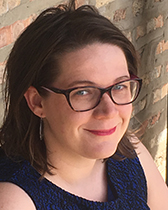 Lauren Stokes
Lauren Stokes
Assistant Professor, Department of History
Project: Delusions of Labor: Labor Recruitment and Family Reunification in the Federal Republic of Germany
"My book project investigates the history of family reunification for guest workers in West Germany and unified Germany. 'Family migration,' often called 'chain migration,' is in fact the primary legal pathway for migration into Europe and the United States today. What has it meant to be classified as a 'family migrant' in the immigration office, in the courtroom, in the workplace, and in the family itself? Delusions of Labor shows that arguments about family migrants are fundamentally arguments about the role of reproductive labor in the economy."
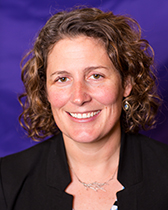 Kim Marion Suiseeya
Kim Marion Suiseeya
Assistant Professor, Department of Political Science, Environmental Policy and Culture Program, and Center for Native American and Indigenous Research
Project: The Justice Gap in Global Forest Governance
"This book project examines possible explanations for continued injustice in global forest governance by asking: why, despite nearly four decades of efforts to mitigate injustice, does justice for forest communities remain elusive? For 30 years, policy makers have sought to redress the concerns of the world’s 1.6 billion forest peoples, including nearly 550 million Indigenous Peoples, by introducing rights-based and participatory approaches to conservation. Despite these efforts, however, claims of injustice persist. Using data collected through interviews, participant observation, surveys in Laos, plus four collaborative event ethnographies (at the 10th Conference of Parties to the Convention on Biological Diversity, the 2014 World Parks Congress, the 21st Conference of Parties to the UN Framework Convention on Climate Change, and the 2016 World Conservation Congress), the research examines how the meaning-making processes in global forest governance impact the justice experiences of forest peoples and Indigenous Peoples. The findings reveal that particular conceptualizations of justice have become a central part of the fabric of global environmental governance, limiting justice possibilities for communities."
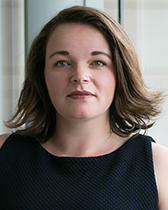 Noelle Sullivan
Noelle Sullivan
Charles Deering McCormick Distinguished Lecturer; Associate Professor of Instruction, Global Health Studies
Project: Consuming the Hospital: International Voluntourism in Tanzanian Health Facilities
Volunteer tourism—or “voluntourism”—is a popular international travel trend. Hospital placements in the so-called Global South are particularly attractive. This study explores rhetorics and practices making up voluntourism in health facilities, from companies’ advertisements, to foreign volunteers and Tanzanians’ interactions in practice. Global constructions of black “Africa” shape voluntourism endeavors. Hospitals as commodities for foreign consumption enables Tanzanians and foreign volunteers to envision new possibilities, all while their engagements erode fragile health systems.
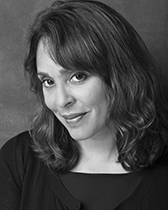 Natasha Trethewey
Natasha Trethewey
Board of Trustees Professor of English
Project: Item: Poems
The poems in Item emerge from a consideration of the convergence of the history of executions conducted in Mississippi’s traveling electric chair, the sites of lynchings, and the locations of Confederate memorials around the state. Beginning in 1940 and tracing the roughly fifteen-year operation and route of the chair, I intend to map the crosscurrents of those implements of white supremacy and black subordination graven onto the landscape and into the American psyche. There, against the backdrop of Confederate monuments and memorialization, is a story of America’s hidden wound and the struggle for justice.
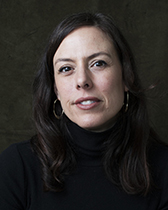 Rachel Jamison Webster
Rachel Jamison Webster
Associate Professor of Instruction, Department of English, Creative Writing
Project: Before and Behind Us in Time: Ancestry, Denial, and Evolving the American Story
"At the heart of this project is a story about my ancestor, Molly Walsh, who arrived in Maryland in 1680 as a 17 year-old indentured servant. She survived her indenture and became a lone female farmer, before purchasing two male slaves, freeing them and marrying one—the Walof Chief Bana’Ka. They became the grandparents of Benjamin Banneker, the colonies’ first African American author of almanacs who corresponded with Thomas Jefferson, insisting that we could not establish our new country on the crime of slavery. I will use this story to grapple with denials at the heart of the country’s—and my family’s—conceptions of race, gender and identity, and will consider the ways that rising interest in DNA testing and ancestry asks us to reframe the American story."
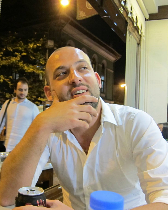 Emrah Yıldız
Emrah Yıldız
Assistant Professor of Anthropology and Middle East & North African Studies
Project: The Traffic with Iranian Pilgrims: Religion, Economy and Territory Across Borders
The Traffic with Iranian Pilgrims follows the pathways of a ziyarat (saint visitation; minor pilgrimage) route, also known as Hajj-e Fuqara’ (pilgrimage of the poor), from bus stations in Iran through Turkish bazaars to the Sayyida Zainab shrine near Damascus, Syria. In contrast to those scholars who see in Islamic ritual the pre-determined stage for ethical cultivation and self-making pedagogy, the project reconceptualizes religious mobility as a generative force of social action and spatial production on a regional scale.
2018-2019 Fellows
 Micaela di Leonardo
Micaela di Leonardo
Professor, Department of Anthropology, and Affiliate, African American Studies, Gender and Sexuality Studies, and Performance Studies
Project: The View From Cavallaros: Race, Gender, and Public Culture in an American City
"My project is an historical ethnography of political economy and public culture over the last three decades in New Haven, Connecticut. Its key focus is on the lives and apprehensions of working- and middle-class black and white women. Starting from the optic of a mixed and shifting neighborhood, and considering different residents’ visions of the “right to the city,” the study then opens up to the whole metropole and its economic, political, cultural, and demographic changes over time."
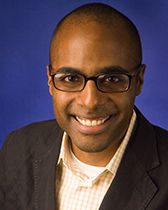 Brett Gadsden
Brett Gadsden
Associate Professor, Department of History
Project: From Protest to Politics: The Making of a 'Second Black Cabinet'
"In the 1960s and early 1970s, African Americans gained unprecedented access to seats of power in the federal executive branch. Gadsden's project, titled From Protest to Politics: The Making of a 'Second Black Cabinet,' explores the political and public policy work of a select group of figures in the Kennedy, Johnson, and Nixon administrations who served as cabinet and sub-cabinet secretaries, heads of federal agencies, and high-ranking political advisors. He argues that these African Americans' efforts to translate the spirit of major civil rights legislation of the era into concrete policy prescriptions marked a new chapter in American political history."
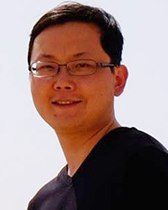 Jun Hu
Jun Hu
Assistant Professor, East Asian Art, Department of Art History
Project: The Perturbed Circle: Chinese Architecture and Its Periphery
"This project is an account of how architectural practice in pre-modern China was closely connected to broader strains of political, religious, and scientific thinking. Through a series of case studies - from court production of architectural knowledge, technological advancement vis-a-vis contemporary mathematical knowledge, to urban planning under Japanese colonial occupation - it tries to demonstrate how and to what effect architecture served as the heuristic devices with which intellectual problems were worked out, and religious questions posed."
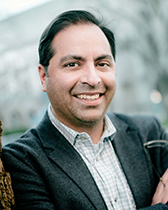 Rajeev Kinra
Rajeev Kinra
Associate Professor, South Asian and Global History, Department of History; Co-Director, Global Humanities Initiative; Director, Asian Studies Program
Project: The Mughals and the Modern Humanities: The Entangled Lives and Legacies of Early Modern Indo-Persian and European Intellectuals (ca. 1600-1800)
"My new book explores a range of texts and global encounters that connected two pioneering early modern scholars across two centuries: William Jones (d. 1794), a celebrated British Orientalist and colonial official in India whom some have described as the "father of modern linguistics;" and Jamal al-Din Husain Inju Shirazi (d. 1626), a Mughal courtier whose scholarship Jones studied and incorporated into some of his own work. Along the way, I hope to suggest that the intellectual roots of 'modern' thought are actually far more complex - and worldly - than is usually acknowledged."
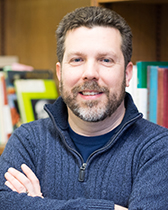 Greg MacAyeal
Greg MacAyeal
Curator of the Music Library, Northwestern University Libraries
Library Fellow 2018-19
Project: Resultant Masses: John Cage, Glenn Branca, and the 1982 New Music America Festival
During a 1982 new music festival, composer John Cage made several disparaging comments on the music of fellow composer Glenn Branca. The story is well known, but the resultant consequences for both composers has not received a critical review. My research will offer insights on Cage, Branca, and the new music culture by examining primary source collections held in the Music Library (John Cage Collection, Glenn Branca Archive, and New Music Chicago Archive).
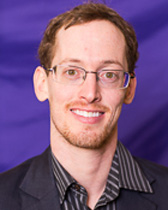 Shmulik Nili
Shmulik Nili
Assistant Professor, Department of Political Science
Project: Integrity, Personal and Political
"My book project seeks to show that a democratic polity has its own morally important integrity, and to examine the relationship between this political integrity and personal integrity, deriving practical implications for both individual and collective conduct. These implications range from the proper political response to foreign and domestic corruption, through questions regarding the 'clean hands' of political operatives serving dangerous presidents, to highly controversial public monuments, commemorating political figures whose integrity is intensely disputed."
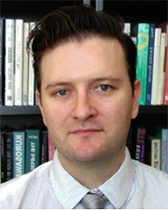 Patrick James Noonan
Patrick James Noonan
Assistant Professor, Department of Asian Languages and Cultures
Project: Culture of Disaffection: Post-Fascist Aesthetics in 1960s Japan
"Culture of Disaffection examines countercultural responses to the legacy of fascism in 1960s Japan. If fascist aesthetics sought to unify the Japanese people as an ethno-national community through experiences of emotional harmony, then post-fascist aesthetics, I propose, sought to fragment them through experiences of emotional discord in order to disrupt the persistence of fascistic ideologies in the postwar era. This project shows how the emotional environment was a key site of contestation in the aftermath of Japanese fascism."
 Eric Patrick
Eric Patrick
Associate Professor and Production Area Head, Department of Radio/Television/Film
Project: The Acoustics of Roux
"In The Acoustics of Roux, the sonic qualities of recorded voices carry residues from their source into the animated image. Oral accounts of the Cajun region combine with animation in this ethnographic film that explores the intersection of memory and the historical record, providing a lens to view more contemporary issues including the criminalization of language, the acculturation of diverse ethnic groups, bigotry, migration patterns, and economic mobility."
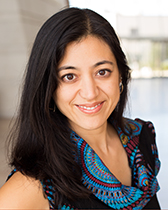 Shayna Silverstein
Shayna Silverstein
Assistant Professor, Department of Performance Studies
Project: Fragments of Belonging: The Politics of Syrian Performance in the 21st Century
"Syria is socially fragmented and physically decimated by seven years of armed conflict, humanitarian crises, and mass displacement. Grounded in cultural praxis and embodied sensibilities, my project looks at the role of performance in negotiating the deep rifts that have cleaved through 21st-century Syrian society. I demonstrate how the subjects and affects that circulate in wartime public culture reproduce the very myths, traditions, and identity politics from which they emerge. Not only a humanitarian disaster nor a destabilizing force with global impact, Syria today is constituted through and deeply embedded in the spatial, temporal, and affective dynamics of body, performance, and culture."
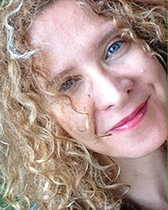 Domietta Torlasco
Domietta Torlasco
Associate Professor, Department of French and Italian and Comparative Literary Studies Program
Project: Rhythm Against Measure: Cinema, Montage, and the Life of Images
"This project turns to rhythm as the critically neglected dimension in the contemporary study of film and the moving image. Its overall aim is to position rhythm as a pivotal mode of resistance to power and thus a key element in defining the relation between the aesthetic and the political. Rhythm is not what happens to forms or to a subject - rather, it is constitutive of their very taking shape."
2017-2018 Fellows
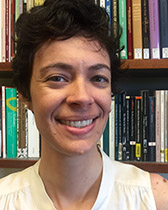 Lydia Barnett
Lydia Barnett
Assistant Professor, Department of History
Project: Gender, Labor, and Environment in Early Modern Europe
Scientific interest in the environment grew enormously during the 17th and 18th centuries. This project explores the largely invisible labor that went into the making of environmental knowledge—the ‘housework’ performed by the wives, children, and servants of elite European naturalists, and the ‘fieldwork’ done by local peasants and colonial subjects—in order to understand the classed, raced, and gendered assumptions lurking behind Enlightenment climatology.
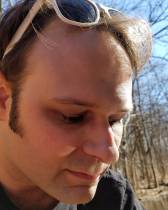 James J. Hodge
James J. Hodge
Assistant Professor, Department of English and the Alice Kaplan Institute for the Humanities
Project: Animating History: New Media Art and the Opacity of Digital Experience
A multitude of animated forms flourish in the digital age from glitch aesthetics to video games. Animating History theorizes the present ubiquity of animation as a symptom of the changing relation of human experience to the workings of technology itself, or the sense that digital media operate beyond human agency. In this context animation aesthetics in new media art become an indispensable resource for gauging the ways digital media transform historical experience.
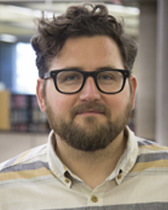 Josh Honn
Josh Honn
Digital Humanities Librarian, Northwestern University Library
Library Fellow 2017-18
Project: How Tall a Shadow You Can Make: Ross D. Brown, Historical Memory, and Archival Violence
In 1916, Ross D. Brown (1885 - 1965) published his first chapbook of radical poetry, Rhymes of Reason, which included an introduction by America’s leading socialist Eugene Debs. Born in Dublin, Indiana, Ross D. Brown lived most of his life on the southside of Chicago, and in that life he was many things: African American, socialist, poet, activist, orator, organizer, inventor, preacher, author and publisher. A Million Tongues Are Calling For My Pen seeks to situate Brown’s life and work in black radical literary and political traditions and movements, while also critically exploring the genre of biography, “recovery” projects, archive-making, and what it means to be made obscure.
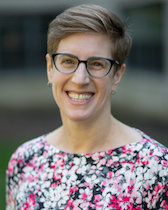 Emily A. Maguire
Emily A. Maguire
Associate Professor, Department of Spanish and Portuguese and Latina/o Studies Program
Project: Tropical Time-Machines: The Uses of Science Fiction in Contemporary Caribbean Literature and Film
The last two decades have seen a remarkable rise in the presence of science fiction in the cultural production of Cuba, Puerto Rico, the Dominican Republic, and their diasporas. My project explores the significance of this science fictional turn in recent Caribbean literature and film. If Caribbean literature has previously positioned the region as outside of [Western] time, occupying a repeating or static space, I show how science fiction as a mode of narration acts to break this cycle, establishing a different relationship not only to the future but also to global understandings of history, temporality, and interconnectedness.
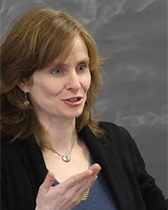 Kate Masur
Kate Masur
Associate Professor, Department of History
Project: The Law of the Land: Race, Liberty, and Policing Before the Fourteenth Amendment
This project elucidates debates about race, police powers, and personal liberty from the colonial period through the Civil War. In the process it offers a new account of the origins of the Fourteenth Amendment’s protections of citizenship, equal rights, and due process, and helps us understand why those protections have been so very tenuous.
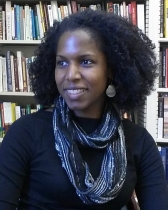 Shaun Myers
Shaun Myers
Assistant Professor, Department of English
Project: Transient Intimacies: Contemporary African American Writing and the Form of Travel
My project examines how African American writers in the post–civil rights era have reimagined the meaning and grounds of U.S. racial integration by depicting the black traveler’s transient intimacies. Staged in memoirs, performances, travel journals, and fiction, these scenes of fleeting but close encounters with strangers abroad offer not only a critique of integration’s unfulfilled promise of liberal subjectivity but also the occasion to rethink the primacy of the novel in contemporary African American literature.
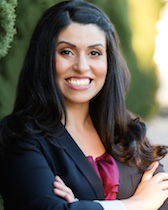 Cynthia Nazarian
Cynthia Nazarian
Assistant Professor, Department of French and Italian; Affiliated Faculty, Comparative Literary Studies Program
Project: Violent Sympathies: Literature, Sovereignty, and the Hazards of Fellow Feeling
Violent Sympathies takes an interdisciplinary, cross-temporal approach to an enduring problem: the political challenge posed by sympathy. Investigating the ways in which sympathy counterintuitively enables force when shifted from victims onto perpetrators or institutions, it bridges early modern literature and contemporary political theory to explore how fellow feeling’s “hazards” channel broader concerns regarding national identity, elite privilege, personal sovereignty, and the state’s monopoly over violence and law-making.
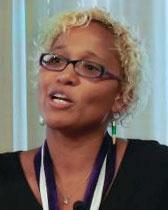 Susie Phillips
Susie Phillips
The Alumnae of Northwestern University Teaching Professor; Associate Professor, Department of English
Project: Learning to Talk Shop: Mercantile Mischief and Popular Pedagogy in Premodern England
In the fifteen and sixteenth centuries, multilingual dictionaries and phrasebooks flooded the European marketplace, opening up a virtual classroom to an audience who did not have access to formal education. Far more than practical conversation guides, these bestsellers offered instruction in the pragmatic, and murky, ethics of the premodern marketplace, teaching readers how to take advantage of retailers, cheat customers, and welch on debts in up to eight different languages. My project explores what happens when language learning itself undergoes a translation, out of the schoolroom, into the marketplace and further down the social ladder.
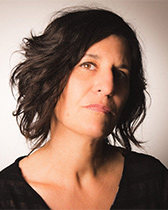 Debra Tolchinsky
Debra Tolchinsky
Associate Professor, Department of Radio/Television/Film; Director, MFA in Documentary Media Program
Project: "True Memories and Other Falsehoods," A Documentary Feature Film
Memories are unreliable and their use within the criminal justice system can have grave consequences. Penny Beerntsen (Making a Murderer) mistakenly identified an innocent man as her attacker, resulting in his 18-year incarceration. An individual remembers committing a crime that they did not commit. An investigator elicits (and believes) a false confession. My documentary examines how memories form, how they become contaminated, and how convictions based on contaminated memories affect everyone involved, while underscoring protocols to prevent future errors.
2016-2017 Fellows
Héctor Carrillo
Associate Professor, Department of Sociology and Gender & Sexuality Studies Program
Project: The Paradox of Sexual Identities
The acquisition of a sexual identity has come to be seen as a core feature of stories about the self. My project examines the identities of men who have sex with both women and men but reject the label “bisexual,” preferring to think of themselves as straight or gay, or as queer, heteroflexible, mostly straight, or mostly gay. A study of such individuals sheds light on the paradoxes and complexities of sexual classification writ large.
Read an October 2016 profile of Héctor's project, written by Undergraduate Franke Fellow Jaclyn Zhou.
John Alba Cutler
Associate Professor, Department of English and Latina/o Studies Program
Project: Invisible Hands: Competition and Class Consciousness in Latino Print Culture, 1898-1945
In the first half of the twentieth century, over 200 Spanish-language newspapers were published in the United States. These newspapers regularly reprinted poetry, essays, and fiction by Latin American and European writers, as well as original works by local writers. My research investigates these newspapers as the most important literary institutions for Latino communities during the period, asking what they reveal about the value of literature to community formation within a changing media landscape.
Read a May 2017 profile of John's project, written by Undergraduate Franke Fellow Naomi Johnson.
Jonathon Glassman
Professor, Department of History
Project: Barbarism, Autochthony, and Race in African Thought
My project addresses the racialization of African discourses of difference. Most comparative studies assume that race-thinking originated in the West; when it is found elsewhere, such as Rwanda or Darfur, they assume it is an inflection of colonial ideas. I will complicate such assumptions by exploring the tangled and multiple roots of African racial thought, including many that can be found in the continent’s deep intellectual history.
Read a January 2017 profile of Jonathon's project, written by Kaplan Undergraduate Affiliate Pascale Carrel.
Brannon D. Ingram
Assistant Professor, Department of Religious Studies
Project: Revival From Below: The Deoband Movement and Global Islam
My project is the first to study one of the most influential movements in modern Islam, the Deoband movement, in a global context. The project shows how this movement has reconfigured notions of Islamic ‘tradition’ through its widely-debated critique of Sufism. Demonstrating how Muslim publics from colonial India to postcolonial South Africa came to participate in the debates the movement initiated, it situates the Deoband movement within a broader crisis of authority in Islam in the past two centuries.
Read a February 2017 profile of Brannon's project, written by Kaplan Undergraduate Affiliate Zain Mohammad Shaikh.
Nitasha Tamar Sharma
Charles Deering McCormick Professor of Teaching Excellence, Associate Professor, Department of African American Studies and Asian American Studies Program; Affiliate of Performance Studies
Project: Hawai’i Is My Haven: Race and Indigeneity in the Black Pacific
This project is the first full-length inter-disciplinary study of contemporary Blacks in Hawai‘i. The book analyzes the lives, narratives, and representations of Blacks, including multiracial Black Hawaiians, Black Samoans, and Black Japanese, who comprise 3% of this Pacific island society. This ethnography reveals how mixed race people negotiate, express, and repress race as they identify across constructed racial categories. It speaks to debates in Critical Mixed Race Studies and the intersection of Black Studies and Native/Pacific Island Studies by offering new theories of belonging that emerge from the intersection of race and indigeneity in the Black Pacific.
Read a November 2016 profile of Nitasha's project, written by Undergraduate Franke Fellow Linnea Hodge.
Erica Weitzman
Assistant Professor, Department of German
Project: At the Limit of the Obscene: Realism, Aesthetics, Profanation
This project examines how an aesthetics of the obscene emerges within the literature and criticism of nineteenth- and early twentieth-century German realism. I consider the obscene, in the context of this era’s aesthetic and ethical presuppositions, as not merely a synonym for sexual or scatological matters, but rather a reaction to alleged excesses of sensuous appearance beyond established frameworks of meaning, with which writers of the time tried in various ways to come to grips.
Michelle M. Wright
Professor, Department of African American Studies and Comparative Literary Studies Program; Faculty Chair of Hobart Women's Residential College
Project: Feeling Europe: The African Diaspora and Affect in the Heart of Empire
Feeling Europe argues that travel narratives from across the Black and African Diaspora constitute a genre unto themselves in the way they link place and emotion as a foundation towards understanding Blackness in the world—i.e., outside the assumed "homes" of the African and American continents.
Read a February 2017 profile of Michelle's project, written by Kaplan Humanities Scholar Anna White.
2015-2016 Fellows
Michael Allen (History)
Tug of War: Confronting the Imperial Presidency, 1966-1992
Mark Alznauer (Philosophy)
Hegel and the Logic of Self-Constitution
Aymar Jean Christian (Communication Studies)
Open TV: Developing Art and Community-Based Networked Television
Steve Epstein (Sociology)
Sexual Health as Buzzword: Histories of Emergence and Politics of Proliferation
Elizabeth Shakman Hurd (Political Science)
Religion and Global Politics Beyond Freedom and Violence
Christina Kiaer (Art History)
An Aesthetics of Anti-Racism: African-Americans in Soviet Visual Culture
Taco Terpstra (Classics)
The Development of Roman Intercommunity Trade: Institutional Continuity and Change
Marcia Tiede (Northwestern University Library, Department of Metadata and Discovery Services)
Modibo Keita’s "L’Enfant Sarakolle:" Students as Ethnographers in Colonial French West Africa
2014-2015 Fellows
Ana Aparicio (Anthropology and Latina and Latino Studies)
"Brown Picket Fences: Latinos, Immigrants, and the Transformation of the American Suburb"
Anthony Chen (Sociology and Political Science)
"Race-Conscious Affirmative Action in College Admissions from the March on Washington to Bakke"
Rebecca Johnson (English)
"History of the Novel in Translation: Errant Reading and the Circulation of Form in Arabic, 1835-1913"
Jennifer Lackey (Philosophy)
"The Epistemology of Groups"
Melissa Macauley (History)
Masters of the South China Sea: Migration and Power in Maritime Chaozhou, 1660-1937
Jason Nargis (University Library)
"Signal and Noise in the Art and Teaching of Ed Paschke"
Dassia Posner (Theatre)
"Vibrant Collaborations: Alexander Tairov, Alisa Koonen, and the Moscow Kamerny Theatre"
Angela Ray (Communications)
"Vibrant Collaborations: Alexander Tairov, Alisa Koonen, and the Moscow Kamerny Theatre"
Alejandra Uslenghi (Spanish and Portuguese)
"Cosmopolitan Itineraries: Latin American Culture at Nineteenth Century Universal Exhibitions"
2013-2014 Fellows
Katharine Breen (English)
"Engines of Thought: Experimental Allegory in the Middle Ages"
Doris Garraway (French and Italian)
"Performing Sovereignty: Power, Print, and Performance in the Haitian Kingdom of Henry Christophe"
Krista Thompson (Art History)
"Bling and Bixels: The Camera, Performance, and the Visual Economy of Light in African American Diasporic Aesthetic Practice"
Helen Tilley (History)
"The Wisdom of the Peoples: African Decolonization, Global Governance, and Cold War Constructions of Traditional Medicine"
Wendy Pearlman (Political Science)
"Breaking Down the Barrier of Fear: Understanding Participation in the Syrian Uprising"
John Schafer (Classics)
"Alone Together: A study of Seneca's Letters"
Scott Krafft (Library Fellow)
"Little Things: Charlotte Moorman's Archive"
2012-2013 Fellows
Nathalie Bouzaglo (Spanish and Portuguese)
"Adulterated Nation: Illicit Passions in the Venezuelan Fin de Siècle"
Kasey Evans (English)
"Renaissance Resurrection: Making the Dead Speak in Reformation Texts"
Benjamin Frommer (History)
"The Ghetto without Walls: The Identification, Isolation, and Elimination of Bohemian and Moravian Jewry, 1938-1945"
Emily Rohrbach (English)
"Modernity's Mist: British Romanticism and the Poetics of Anticipation"
Wendy Wall (English)
"Strange Kitchens: Knowledge and Taste in Early Modern English Recipe Books"
Nina Barrett (Library Fellow, Communications Specialist, NU Library)
"The Leopold & Loeb Files: An Intimate Look at One of America's Most Famous Crimes"
2011-2012 Fellows
David Ebrey (Philosophy)
"The Role of Matter in Aristotle's Natural Science"
Nina Gourianova (Slavic Languages and Literatures)
"Visualizing Radicalism: The Aesthetics and the Ideological Paradigms of the Twenties"
Katherine Hoffman (Anthropology)
"Mirror of the Soul: Law, Islam, and Language under the French Protectorate of Morocco (1912-1956)"
Amy Stanley (History)
"Revolutionary Kyoto: The Everyday Politics of Rebellion, Restoration, and Enlightenment in Japan's Imperial City, 1860-1890"
Barry Wimpfheimer (Religious Studies)
"Coherence: The Engine of Jewish Law"
İpek Yosmaoğlu (History)
"A World Undone: Religion, Violence, and the Politics of Nationhood in Ottoman Macedonia, 1878-1912"
Julie Rudder (Library Fellow)
"Light and the Unseen: The Role of Light in Contemporary Visual Arts Practice"
2010-2011 Fellows
Thomas Bauman (Musicology)
"'No Use Actin' What You Ain't': Chicago's Pekin Theater"
Christopher Bush (French and Comparative Literary Studies)
"The Floating World: Japonisme, Modernism, Globalization"
Peter J. Carroll (History)
"This Age of Suicide': Modernity, Society, and the Self in China, 1900-1957"
Wendy Espeland (Sociology)
"Commensurate Worlds: How We Do Things with Numbers"
Jörg Kreienbrock (German)
"Recalcitrant Objects: The Secret Life of Things"
D.J. Hoek (Library Fellow, Head of Music Library)
"From Bird to Cage: The Circumstances and Aesthetic Rationale Behind the Dial Library of Contemporary Classics"
2009-2010 Fellows
Susan Phillips (English)
"Polyglots and Pocketbooks: A Cultural History of the Pre-modern Dictionary."
Lars Toender (Political Science)
"Experiences of Tolerance"
Domietta Torlasco (French and Italian)
"Digital Memory: Antigone, Cinema, and the Archive"
Mary Weismantel (Anthropology)
"Sexual Themes in Moche Ceramic Art"
John Russell (Library Fellow)
"The Little Shepherd Leaves Town: Rediscovering the Recorder in the 19th Century"
2008-2009 Fellows
Martha Biondi (African American Studies)
"Black Student Activism and the Early Black Studies Movement, 1966-1980"
Sherwin Bryant (African American Studies)
"Rivers of Gold, Sweet Valleys, and Sordid Cities: Slavery and the Struggle for Autonomy and Rights in the Kingdom of Quito, 1680-1810"
Jonathon Glassman (History)
"War of Words, War of Stones: The Multiple Sources of Racial Thought in Colonial Zanzibar"
Cecily Hilsdale (Art History)
"Greeks Bearing Gifts: Byzantine Art and Diplomacy in an Age of Decline"
Seamas O'Driscoll (Slavic)
"Invisible Forces: Economy and the Russian Literary Imagination"
Marco Ruffini (French & Italian)
"Vasari and His Readers: The Early Reception of the 'Lives of the Artists'"
Dan Zellner (Library Fellow)
"The Future of Improv"
2007-2008 Fellows
Huey Copeland (Art History)
"Impossible Objects: Figuring Slavery in Postmodern America"
Christopher Lane (English)
"Failing Gods: Doubt in the Age of Victoria"
Rüdiger Seesemann (Religion)
"Sufism in Context: The Rise of a Twentieth-Century West African Sufi Movement"
Michael Sherry (History)
"Go Directly to Jail: The Punitive Turn in American Life"
Julia Stern (English)
"Mary Chestnut's Unfinished Epic"
Scott Garton (Library Fellow)
"A Life in Time and Space: Examining the Life and Career of Aubrey Beardsley through Geographic Software"
2006-2007 Fellows
Bernadette Fort (French & Italian)
"Greuze and the Aesthetics of Fatherhood: Images of Patriarchal Authority in the Late Ancien Régime"
Betsy Erkkila (English)
"Writing the Revolution: Literature and Politics in Revolutionary America"
Sarah Maza (History)
"The Parricide: Violette Nozière and 1930s Paris"
Helen Thompson (English)
"Materialism and Culture in the Transatlantic Eighteenth Century"
Ji-Yeon Yuh (History)
"Contesting Nationalisms: Memory, Identity, and the Korean Diaspora"
Andrea Stamm (Library Fellow)
"Chinese and Japanese Perspectives on Chicago's World Fairs, 1893 and 1933-34"
2005-2006 Fellows
David Schoenbrun (History)
"Violence, Vulnerability, and Authority in Eastern Africa Before 1800"
Souleymane Bachir Diagne (Philosophy)
"Figures of Difference: The Philosophical Readings of L.S. Senghor"
Nasrin Qader (French and Italian)
"Narratives of Catastrophe in Francophone African Fiction"
Janet Olson (Library Fellow)
"William Dwight Porter Bliss and the Gospel of Social Salvation"
2004-2005 Fellows
Christopher Herbert (English)
"The Indian Mutiny and the Victorian Soul"
Tessie Liu (History)
"Universalism Transformed: Race-Thinking and the Rise of the Cultural Nation in Modern France"
Jorge Coronado (Spanish and Portuguese)
"Displaced Modernities in the Andean Avant-Garde"
Axel Mueller (Philosophy)
"Realism and Pragmatism: Two Aspects of Empirical Knowledge"
Virginia Kerr (Library Fellow)
"Renaissance and Baroque Library Buildings: Early Views."
2003-2004 Fellows
Clare Cavanagh (Slavic Languages and Literatures)
critical biography of Czeslaw Milosz
Alexandra Owen (History)
"The Politics of Inferiority in Britain, 1890-1925"
Brodwyn Fischer (History)
"Law, Ambiguity, and Power in the History of Modern Latin America"
Francesca Bordogna (History)
"Negotiating Boundaries: Philosophy and the Human Sciences in the Work of William James"
Charlotte Cubbage (Library Fellow)
"Women Writers' Utilization of London as a Metaphor in Nineteenth-Century Novels"
Patricia Dailey (Woodrow Wilson Foundation Posdoctoral Fellow)
2002-2003 Fellows
Robert Gooding-Williams (Philosophy)
"The Strange Meaning of Being Black: Du Bois as Political Philosopher"
Christine Froula (English)
"Toward New Lands, New Civilizations: Virginia Woolf and the Adventure of Modernity"
Doris Garraway (French and Italian)
"The Libertine Colony: Creolization in the French Caribbean"
Cynthia Robin (Anthropology)
"Theory and Practice in an Archaeology of Everyday Life: A Case Study from Chan Noohol, Belize"
Harriet Lightman (Library Fellow)
"Memoirs Relating to the History of the Chicago Section of the American Chemical Society"
Patricia Dailey (Woodrow Wilson Foundation Postdoctoral Fellow)
2001-2002 Fellows
Henry Binford (History)
"The Invention of the Slum: Poverty and the Remaking of Urban Space in America, 1840-1900"
Nancy MacLean (History)
"The Work of Inclusion: Contesting Racial and Gender Inequality on the Job in Modern America"
Susan McReynolds (Slavic Languages and Literatures)
"Aesthetics and Politics: The Case of Dostoevsky"
Alexander Weheliye (English)
"Phono-Graphies: Grooves in Sonic Afro-Modernity"
2000-2001 Fellows
Sarah Maza (History)
"The Myth of the French Bourgeoisie, 1750-1830: An essay on the Social Imaginary"
Thomas McCarthy (Philosophy)
Project will be an investigation of race and political philosophy
Derrick Darby (Philosophy)
Project on moral rights
David L. Easterbrook (Library Fellow)
1999-2000 Fellows
Tessie Liu (History)
"Genealogies of Race: Loyalty, Love, and Nationhood in Republican France, 1789-1848"
Reginald Gibbons (English)
working on a new novel in progress and a book of autobiographical essays
Cristina Traina (Religion)
"The Sensual Mother: Maternal Experience and the Boundaries of Sexual Ethics"
Jean Mainil (French and Italian)
"Fairy Tales and the Art of Seduction: Essay on the Sexual Ethics of the French Enlightenment"
Kathleen Bethel (Library Fellow)
Anthony D'Amato (School of Law Fellow)
1998-1999 Fellows
Lawrence Lipking (English)
"Adam's Dreams: Imagining English Poetry, 1660-1850"
John McCumber (German)
"Continental Philosophy as a Response to Time"
Sarah Fraser (Art History)
"Copying Artists: Sketching in Aesthetic Theory and Practice in China"
Ariela Lazar (Philosophy)
"Psychological Explanations of Behavior in Philosophy"
Jeffrey Garrett (Library Fellow)
Robert Burns (School of Law Fellow)
1997-1998 Fellows
Laura E. Hein (History)
"When Rationality and Democracy Were One: Economic Imagination in Twentieth-Century Japan"
Thomas William Heyck (History)
"Intellectuals and Cultural Authority in 20th-century Britain"
Lloyd Davidson (Library Fellow)
Andrew M.M. Koppelman (School of Law Fellow)
1996-1997 Fellows
Edward Muir (History)
"The Fall of Renaissance Italy"
Micaela di Leonardo (Anthropology)
"Can't We All Just Get Along?' New Haven and Modern Urban American Imaginaries"
Madhu Dubey (English)
"Black Studies and the Project of Vernacular Theory"
Jane Winston (French and Italian)
"Postcolonial Contexts: Refiguring the French Margins with Duras"
Deborah Campana (Library Fellow)
Kathryn Abrams (School of Law Fellow)
1995-1996 Fellows
Carl F. Petry (History)
Will work on a comparative study of the economic dominion by militarist elites in three regimes of the Middle East during the Islamic Middle Period
Reginald Gibbons (English)
Will work on a new novel and poems
S. Sara Monoson (Political Science and Classics)
Project will be a rethinking of the relation of Plato's dialogues to democratic Athens and Athenian self-representation
Michael Stone-Richards (Art History)
Project will be a study of the context, practice, and theory of the Surrealist conception of automatism
William A. McHugh (Library Fellow)
Michael J. Perry (School of Law Fellow)
1994-1995 Fellows
S. Hollis Clayson (Art History)
"Parisian Women and Visual Representation in the 'Terrible Year' (1870-71)"
Robert Launay (Anthropology)
"The 'Prehistory' of Anthropological Theory in the Eighteenth Century"
Kenneth Alder (History)
"The Geometry of the Workplace: The Language and Practice of Mass Production in Revolutionary France"
Julia Stern (English)
"No Space for Dissent: Tyrannies of Voice in the Early American Novel, 1791-1799"
Rochelle Elstein (Library Fellow)
Ronald J. Allen (School of Law Fellow)
1993-1994 Fellows
Albert Ascoli (French and Italian)
"Timely Ironies: Essays in the Historical Understanding of the Renaissance"
Alexandra Owen (History)
"Ritual magic in the Victorian Age"
Terry Mulcaire (English)
"The Aesthetic of Laissez-Faire: Sentimental Values in American Culture, 1770-1860"
Wendy Wall (English)
"Domestic Fictions: Privacy, Maps, and the Home in Early Modern England"
1992-1993 Fellows
Carol J. Avins (Slavic Languages and Literatures)
"Ethnicity, Ideology, Artistry: The Red Cavalry Diary of Isaac Babel"
Barbara Newman (English/Religion)
"Sophia: A History of Wisdom from Solomon to Suso"
Jonathan Glassman (History)
"The Laughing Chorus: Patricians, Plebeians, and Parvenus in a Swahili Town, 1856-1888"
Johnny Payne (English)
"Political Potsherds: Material Culture and the Quechua Renaissance in Peru"
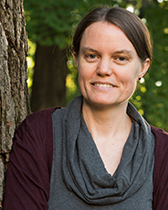

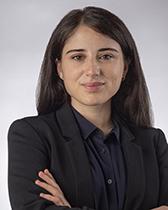
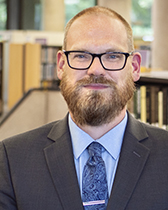
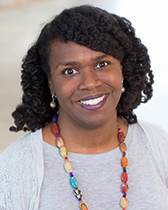
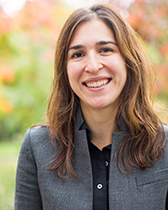

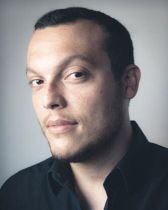
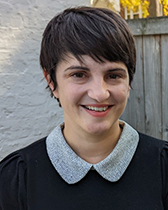
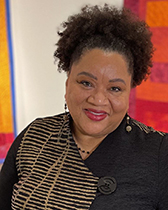
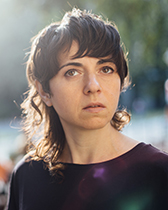

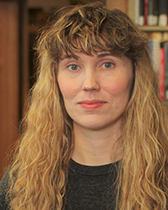
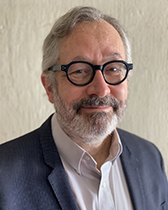
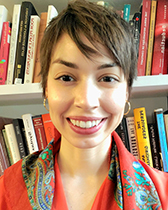


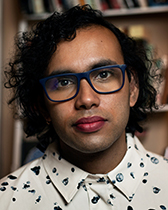
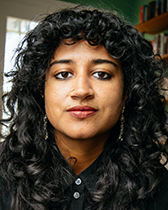
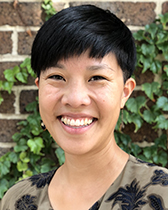
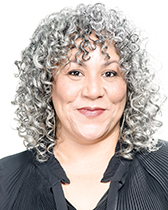











 Adia Benton
Adia Benton Lina Britto
Lina Britto Michelle Guittar
Michelle Guittar Ashish Koul
Ashish Koul Jennifer Lackey
Jennifer Lackey J. Michelle Molina
J. Michelle Molina Anna Parkinson
Anna Parkinson
 Jen Young
Jen Young Rebecca Zorach
Rebecca Zorach Rachel Zuckert
Rachel Zuckert Christopher Bush
Christopher Bush 

 Ann Gunter
Ann Gunter Daniel Immerwahr
Daniel Immerwahr 

 Helen Thompson
Helen Thompson  Alejandra Uslenghi
Alejandra Uslenghi Tristram Wolff
Tristram Wolff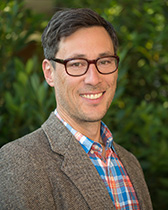 Keith Makoto Woodhouse
Keith Makoto Woodhouse 













 Jun Hu
Jun Hu Rajeev Kinra
Rajeev Kinra






 James J. Hodge
James J. Hodge Josh Honn
Josh Honn Emily A. Maguire
Emily A. Maguire Kate Masur
Kate Masur
 Cynthia Nazarian
Cynthia Nazarian Susie Phillips
Susie Phillips